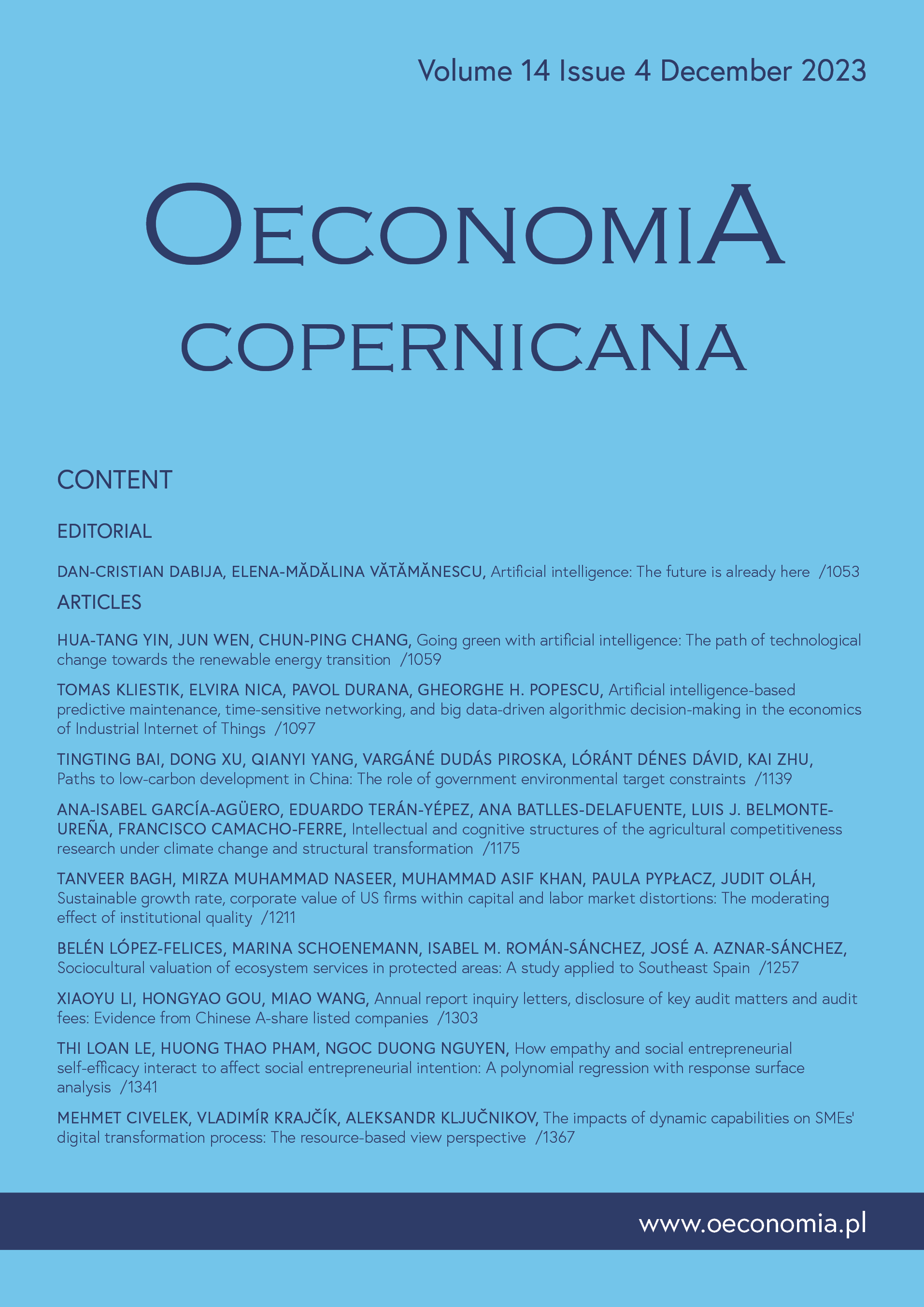Paths to low-carbon development in China:
The role of government environmental target constraints
Paths to low-carbon development in China:
The role of government environmental target constraints
Author(s): Tingting Bai, Dong Xu, Qianyi Yang, Vargáné Dudás Piroska, Lóránt Dénes Dávid, Kai ZhuSubject(s): Energy and Environmental Studies, Environmental and Energy policy
Published by: Instytut Badań Gospodarczych
Keywords: government environmental target constraints; carbon emissions; energy consumption; industrial structure optimization; green technology innovation;
Summary/Abstract: Research background: To achieve the targets for carbon peak and air quality improvement, local governments should propose environmental targets and develop realization paths that are tailored to their unique local conditions. They then promote low-carbon development through the implementation of multiple measures.Purpose of the article: As the government performance appraisal system im-proves, the ques- tion arises as to whether governments take the initiative to com-bine environmental policies with government target constraints to reduce carbon emissions.Methods: The announcement of environmental target constraints by local governments in government work reports is considered a quasi-natural experiment. This study examines the effect of government environmental target constraints (GETC) on carbon emissions (CEs) using differences-in-differences (DID), propensity score matching-DID (PSM-DID), and spa- tial-DID (SDID) with data from 241 Chinese cities from 2003 to 2019.Findings & value added: The results demonstrate that GETC can effectively reduce local CEs, with the inhibitory effect being most effective in the first two years after setting environmental targets, but diminishing in the third year. GETC can reduce local CEs through three paths: reducing energy consumption, promoting industrial structure optimization, and encouraging green technology innovation. Spatial spillover effects show that GETC reduces local CEs while exacerbating CEs in neighboring cities, indicating a beggar-thy-neighbor effect in conventional environmental regulation policy. This effect is observed mainly in the geographic matrix and the economic-geographic matrix, but not in the economic matrix. According to heterogeneity analysis, GETC in the eastern and central cities can significantly reduce CEs. The inhibitory effect of GETC on local CEs is stronger in cities where secretaries and mayors have longer tenures and higher levels of education. The paper's theoretical value lies in exploring the reduction of CEs through the combination of government self-restraint and environmental policies, providing a new solution for local governments to achieve CEs reduction. Further- more, it offers practical insights into the improvement of the Chinese government assessment system.
Journal: Oeconomia Copernicana
- Issue Year: 14/2023
- Issue No: 4
- Page Range: 1139-1173
- Page Count: 35
- Language: English

